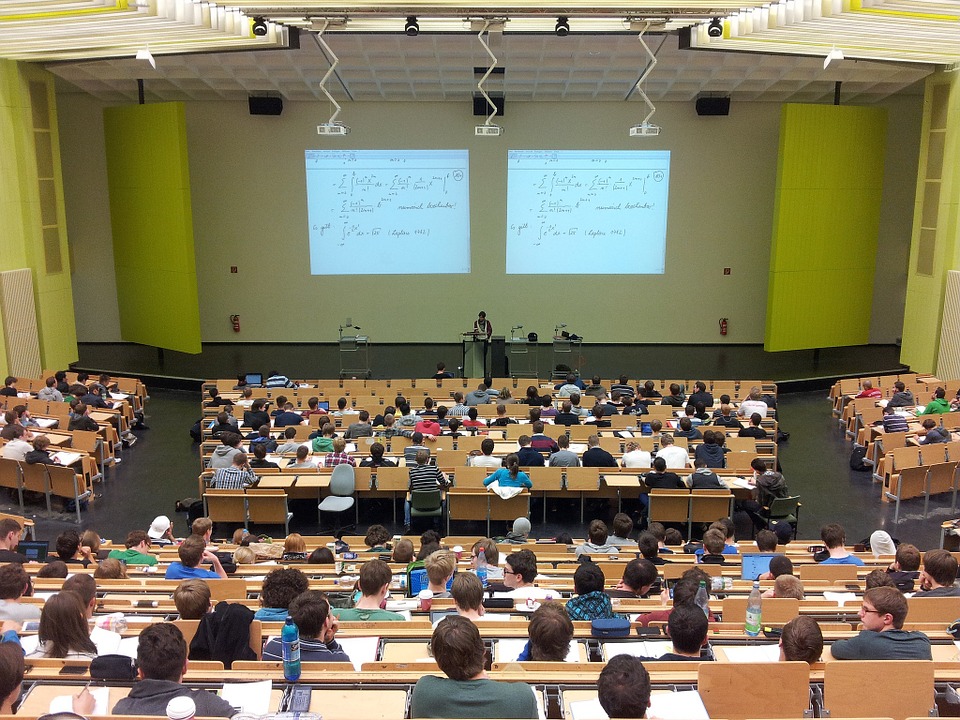 Building school dorms through a P3 have been fairly popular at campuses in the United States, but other types of facilities have been included in the mix in the last decade also. Some say the migration has been driven by colleges and universities experiencing funding constraints. But others see it as a way for institutions develop unique projects and tap private-sector financing without being burdened by operational headaches in the future.
Building school dorms through a P3 have been fairly popular at campuses in the United States, but other types of facilities have been included in the mix in the last decade also. Some say the migration has been driven by colleges and universities experiencing funding constraints. But others see it as a way for institutions develop unique projects and tap private-sector financing without being burdened by operational headaches in the future.
Cleveland State University (CSU) is considering privatizing parking. Trustees agreed to spend $60,000 to hire a consultant to assess its parking and develop a partnership agreement if CSU decides to ask private companies to take over parking operations. CSU has seven garages and 16 lots with a total of 4,131 parking spaces. Annual parking revenue is about $5.6 million and expenditures of $5 million. If trustees go forward, the request for a parking company would be issued at their September meeting. If CSU privatizes parking, proceeds will be used to pay for critical university missions and goals. Parking occupancy currently averages above 90 percent during peak hours. CSU’s master plan includes additional parking throughout campus as well as a rate update.
Southeast Community College (SCC) plans to use a variety of funding mechanisms to move forward on $70 million in construction projects as the first phase of a college-wide facility master plan.
SCC administrators have identified a list of projects they will ask the Board of Governors to approve in the coming months. Some of those projects include: A 61,000-square-foot health sciences building at the Lincoln campus, a 68,000-square-foot multipurpose classroom building would replace the 1960s-era Jackson Hall at SCC’s Beatrice campus, a 40,000-square-foot classroom building as well as a 56,000-square-foot facility for the diesel tech program would be built at SCC-Milford, and new learning centers would be added at Wahoo and Falls City.
The college also plans to try a new strategy to build dormitories at its Beatrice and Milford locations through a public-private partnership, leasing land to private developers to build the residence hall and later renting rooms to students. Although SCC would manage the building through a long-term agreement, the project would put the developers at risk to keep the building occupied. SCC will also engage private donors to help fund new building projects.
Tennessee Gov. Bill Haslam signed a new Initiative on Historically Black Colleges and Universities (HBCUs) that will create an office within the Tennessee Higher Education Commission. Under the law, Tennessee officials seek to increase the participation of HBCUs in state programs, while also “fostering enduring private-sector initiatives and public-private partnership” to “improve academic research and improve programmatic excellence throughout all HBCUs.” The state will focus on increasing graduation rates, enrollment and retention at all seven of the state’s HBCUs.
In Pennsylvania, State College Borough Council approved the Capital Improvement Plan (CIP) for 2018-22. The plan includes about $56 million in projects over the next five years, with $5.88 million in capital projects recommended for 2018. The CIP does not fund or approve any specific projects and acts as a blueprint for the coming years. Planned projects include building and campus infrastructure improvements, street work, high-speed internet expansion, traffic signal improvements and a proposed action sports park. In 2018, the biggest ticket items are street reconstruction and resurfacing, with $2 million proposed for reconstruction of Easterly Parkway from Pugh Street to Garner Street and $510,000 for street and alley resurfacing. Traffic signal and intersection safety improvements are included in the plan, with $530,000 proposed for 2018 and $2.185 million total over the five years. Sanitary sewer rehabilitation and replacement work is proposed over the next five years, with $867,000 proposed for 2018 and $5.3 million total over five years.
In 2022, the borough expects to consider construction of a new parking structure at an estimated cost of $16.5 million. A recent parking study outlined a need for a new parking structure to meet the demands for additional parking spaces downtown. Options could include funding by the borough, a public-private partnership or a private parking facility.
SPI’s team of experienced procurement consultants have a long track record of identifying and winning public sector business. Contact them today!
